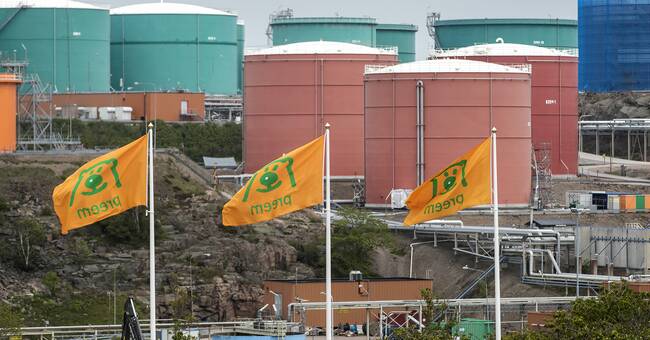The previous expansion of the refinery in Lysekil was met by loud protests from environmental law activists.
Among other things, the organization Greenpeace protested by stopping oil tankers from entering the port of Lysekil.
Rapeseed oil and animal fat residues
After many trips and a yes from Lysekil municipality to expand Preemraff, they still withdrew their application.
Now, instead of oil, they will invest in rapeseed oil, which Ekot reported on.
- We will rebuild an existing plant we have where we produce diesel.
We will adapt it so that we can feed it with renewable raw materials, such as rapeseed oil, pine oil and used frying oil.
It will also be possible to feed it with animal fat residues, says Aad van Bedaf, who is site manager.
The raw materials will then be used for diesel.
Refining renewable raw materials is already being done at Preem in Gothenburg today.
But this investment would mean a facility with three times as much capacity.
Reconstruction instead of expansion
- Preem's highest priority is to start large-scale renewable production at the refinery in Lysekil and it is gratifying that we will now take the first, big step in the refinery's renewable conversion, says Magnus Heimburg, CEO Preem.
According to a press release, the investment is estimated to reduce carbon dioxide emissions by up to 1.7 million tonnes each year.
If everything goes according to plan, the rebuilding will be completed in 2024 and will then have the capacity to handle up to 40 percent renewable raw materials, to then increase that amount and phase out fossil raw materials at the same rate.

